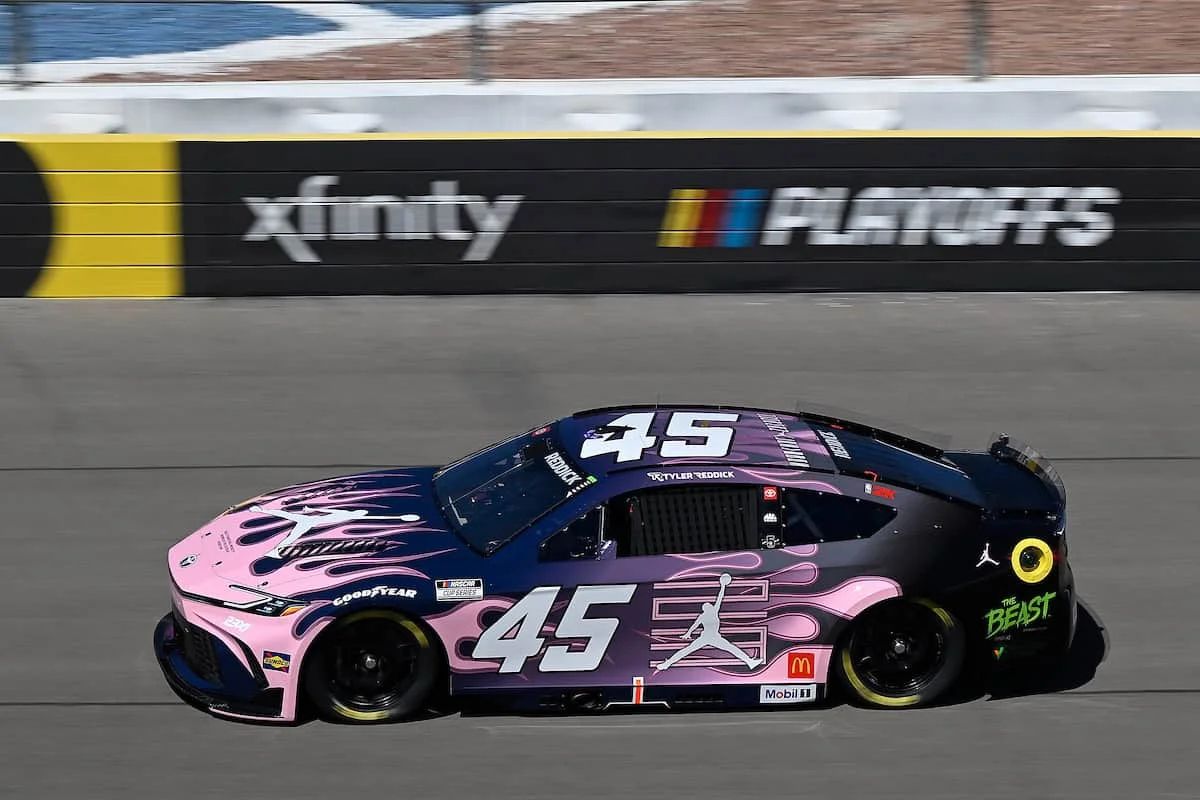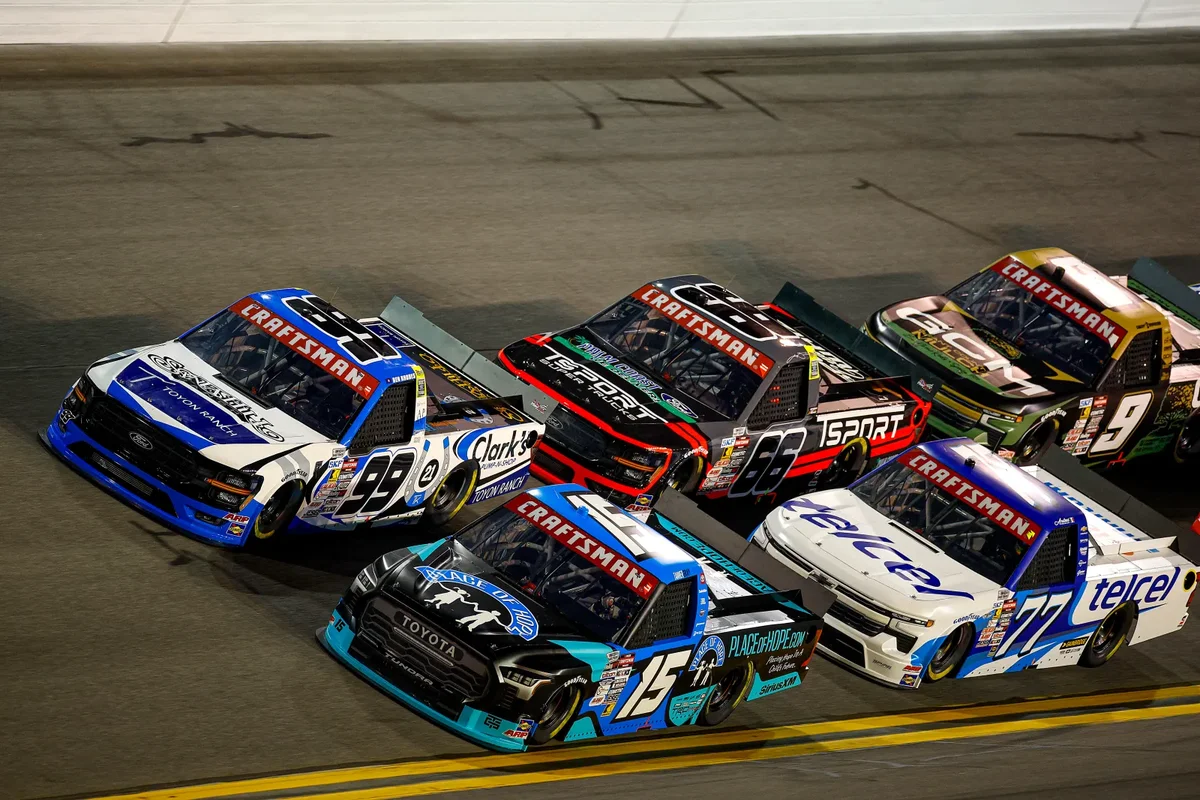The ongoing dispute involving 23XI Racing, NASCAR, and Front Row Motorsports has intensified as a significant document—the 23XI Racing escrow agreement—surfaced from trial evidence. With a high-profile trial scheduled to begin December 1, the revelation of financial details between Stewart-Haas Racing (SHR) and 23XI Racing has stirred further controversy in the motorsports community.
Months of negotiations between the parties failed to resolve the conflict, leading both NASCAR and 23XI Racing to prepare for a court showdown. During this period, leaked courtroom documents emerged, making once-private transactions public. Among the information made accessible was the exact payment structure of a charter sale agreement between Michael Jordan and Denny Hamlin’s 23XI Racing and Tony Stewart’s SHR, highlighting a $28 million escrow transaction.
Details of the $28 Million Charter Escrow Deal
After more than a decade competing in NASCAR, Stewart-Haas Racing, led by Tony Stewart and Gene Haas, ended operations, citing ongoing financial and personal difficulties. As the team prepared to exit the sport, it retained one of its four valuable charters for the Haas Factory Team. The remaining three charters found new owners: Trackhouse Racing, Front Row Motorsports, and 23XI Racing each acquired one, intensifying speculation over the price and conditions of these deals.

The financial terms between SHR and 23XI Racing have now become public through courtroom disclosures. The teams agreed on a $28 million purchase price for the charter, scheduled for payment in four equal installments of $7 million beginning in August 2024. Despite initiating a lawsuit against NASCAR in October 2024, 23XI Racing continued to fulfill its financial commitments with SHR under the escrow agreement, indicating adherence to contractual obligations even amidst legal hostilities.
The significant sum involved has not deterred 23XI Racing from pursuing aggressive legal action. The lawsuit centers around antitrust allegations directed at NASCAR, challenging the fundamental rules of charter ownership and distribution within the sport.
Community Reactions and Insights from Mark Martin
The large financial stakes and the leaking of internal documents have prompted reactions from drivers and fans across the NASCAR world. Mark Martin, renowned for his decades-long career, entered the conversation after revelations from the court battle emerged. Reflecting on his own past hardships in the business, Martin provided a deeply personal perspective that contrasts sharply with today’s sky-high charter prices.
When a fan said,
“Screw the charter system. Qualify and award provisionals. Max the field at 43 cars, again. Go fast or go home.”
— fan, NASCAR enthusiast
Mark Martin replied by sharing his experience from the early 1980s:
“I went broke in 1982 and had to liquidate for pennies on a dollar. I appreciate the concept of the charter system, but hate the repercussions of what has come with them. I’m with you let them race for the prize money like they used to. There would be 45 teams every week eventually.”
— Mark Martin, NASCAR legend
Martin’s memories of almost losing his career due to sponsorship failure and financial instability highlight the stark differences between NASCAR’s earlier eras and the costly modern charter ecosystem. With today’s charters valued at upwards of $28 million each, the sport has shifted far from the days when survival often depended on week-to-week prize money, rather than multimillion-dollar franchise slots.
The Broader Impact on NASCAR’s Legal and Business Landscape
The disclosure of the 23XI Racing escrow agreement adds a layer of transparency but also intensifies the scrutiny of NASCAR’s charter system. As teams like 23XI Racing fulfill substantial payment obligations while simultaneously challenging NASCAR’s business practices in court, questions surface about the long-term ramifications for owners, drivers, and the future of the sport’s structure.
With the trial date approaching, the revelations from leaked courtroom documentation are fueling debate both inside and out of NASCAR circles. Industry insiders and fans alike are waiting to see how the proceedings may reshape ownership norms, revenue distribution, and the competitive landscape for racing teams. The outcome could have far-reaching consequences for all parties, from current power players like Michael Jordan, Denny Hamlin, Tony Stewart, and Gene Haas, to up-and-coming teams eyeing their place in NASCAR’s evolving business environment.
Escrow agreement shows @23XIRacing paid four equal installments of $7 million to @HaasFactoryTeam /SHR beginning Aug. 2024 for one of its #NASCAR charters despite not signing charter agreement and then filing lawsuit on Oct. 2, 2024. pic.twitter.com/z3gCe9S5Dn
— Jerry Jordan (@JerryJordan_KTT) November 23, 2025
Screw the charter system. Qualify and award provisionals. Max the field at 43 cars, again. Go fast or go home.
— azwatergeek (@azwatergeek) November 23, 2025
I went broke in 1982 and had to liquidate for pennies on a dollar. I appreciate the concept of the charter system but hate the repercussions of what has come with them. I’m with you let them race for the prize money like they used to. There would be 45 teams every week eventually https://t.co/A8vFth7mfP
— Mark Martin (@markmartin) November 23, 2025
